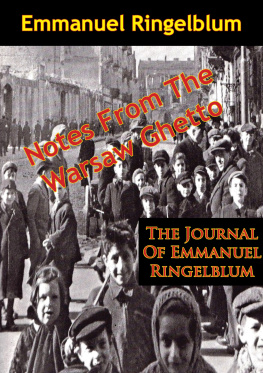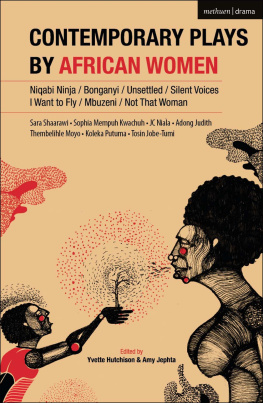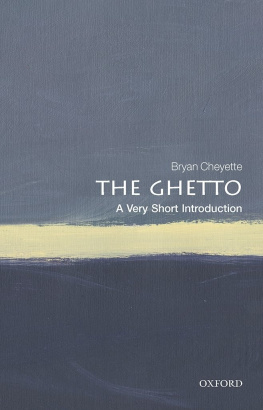Ray Hutchison - The Ghetto: Contemporary Global Issues and Controversies
Here you can read online Ray Hutchison - The Ghetto: Contemporary Global Issues and Controversies full text of the book (entire story) in english for free. Download pdf and epub, get meaning, cover and reviews about this ebook. year: 2011, publisher: Westview Press, genre: Politics. Description of the work, (preface) as well as reviews are available. Best literature library LitArk.com created for fans of good reading and offers a wide selection of genres:
Romance novel
Science fiction
Adventure
Detective
Science
History
Home and family
Prose
Art
Politics
Computer
Non-fiction
Religion
Business
Children
Humor
Choose a favorite category and find really read worthwhile books. Enjoy immersion in the world of imagination, feel the emotions of the characters or learn something new for yourself, make an fascinating discovery.

- Book:The Ghetto: Contemporary Global Issues and Controversies
- Author:
- Publisher:Westview Press
- Genre:
- Year:2011
- Rating:4 / 5
- Favourites:Add to favourites
- Your mark:
- 80
- 1
- 2
- 3
- 4
- 5
The Ghetto: Contemporary Global Issues and Controversies: summary, description and annotation
We offer to read an annotation, description, summary or preface (depends on what the author of the book "The Ghetto: Contemporary Global Issues and Controversies" wrote himself). If you haven't found the necessary information about the book — write in the comments, we will try to find it.
The Ghetto: Contemporary Global Issues and Controversies — read online for free the complete book (whole text) full work
Below is the text of the book, divided by pages. System saving the place of the last page read, allows you to conveniently read the book "The Ghetto: Contemporary Global Issues and Controversies" online for free, without having to search again every time where you left off. Put a bookmark, and you can go to the page where you finished reading at any time.
Font size:
Interval:
Bookmark:
Edited by
Bruce D. Haynes

A Member of the Perseus Books Group
Westview Press was founded in 1975 in Boulder, Colorado, by notable publisher and intellectual Fred Praeger. Westview Press continues to publish scholarly titles and high-quality undergraduate- and graduate-level textbooks in core social science disciplines. With books developed, written, and edited with the needs of serious nonfiction readers, professors, and students in mind, Westview Press honors its long history of publishing books that matter.
Copyright 2012 by Westview Press
Chapter 3, Toward Knowing the Iconic Ghetto, copyright 2012 by Elijah Anderson.
Published by Westview Press,
A Member of the Perseus Books Group
All rights reserved. No part of this book may be reproduced in any manner whatsoever without written permission except in the case of brief quotations embodied in critical articles and reviews. For information, address Westview Press, 2465 Central Avenue, Boulder, CO 80301.
Find us on the World Wide Web at www.westviewpress.com.
Every effort has been made to secure required permissions for all text, images, maps, and other art reprinted in this volume.
Westview Press books are available at special discounts for bulk purchases in the United States by corporations, institutions, and other organizations. For more information, please contact the Special Markets Department at the Perseus Books Group, 2300 Chestnut Street, Suite 200, Philadelphia, PA 19103, call (800) 810-4145, ext. 5000, or e-mail .
Typeset in 11 point Minion Pro by the Perseus Books Group
Library of Congress Cataloging-in-Publication Data
The ghetto : contemporary global issues and controversies /
[edited by] Ray Hutchison and Bruce D. Haynes.
p. cm.
Includes bibliographical references and index.
ISBN 978-0-8133-4503-1 (pbk. : alk. paper)ISBN 978-0-8133-4504-8 (e-book)
1. Inner cities. 2. Sociology, Urban. I. Hutchison, Ray. II. Haynes, Bruce D., 1960HT156.G44 2012
307.3'366dc23
2011024796
10 9 8 7 6 5 4 3 2 1
Bruce D. Haynes and Ray Hutchison
1. A Janus-Faced Institution of Ethnoracial Closure:
A Sociological Specification of the Ghetto
Loc Wacquant
2. De-spatialization and Dilution of the Ghetto:
Current Trends in the United States
Peter Marcuse
Elijah Anderson
4. You Just Dont Go Down There:
Learning to Avoid the Ghetto in San Francisco
Nikki Jones and Christina Jackson
Bruce D. Haynes
Sharon Zukin
Ernesto Castaeda
Alan Gilbert
Brasilmar Ferreira Nunes and Leticia Veloso
10. Demonstrations at Work:
Some Notes from Urban Africa
AbdouMaliq Simone
11. From Refuge the Ghetto Is Born:
Contemporary Figures of Heterotopias
Michel Agier
Ray Hutchison
Ghetto (ghetto), Pronunciation: /'get,/noun (plural ghettos or ghettoes) a part of a city, especially a slum area, occupied by a minority group or groups. Historical: The Jewish quarter in a city: the Warsaw Ghetto an isolated or segregated group or area: the relative security of the gay ghetto; verb (ghettos, ghettoing, ghettoed) [with object] put in or restrict to an isolated or segregated area or group. Origin: early seventeenth century: perhaps from Italian getto foundry (because the first ghetto was established in 1516 on the site of a foundry in Venice), or from Italian borghetto, diminutive of borgo borough.
Although the term ghetto originated in Europe and referred to the area of the city to which Jews were restricted, it has come to embody the urban spaces of marginalized groups in the United States, most notably black Americans. In American popular culture, the term has come to signify both place and mindset of ghetto-centric publications such as 150 Ways to Tell If You Are Ghetto (Wayans, Spencer, and McCullough 1997), Straight from the Ghetto (Berry and Coker 1996), and the sequel You Still Ghetto (Berry 1998). There has even been a Broadway show, Ghetto Klown, written and performed by the Latin comedian John Leguizamo. In the New York Times bestseller Ghettonation: A Journey into the Land of Bling and Home of the Shameless, Cora Daniels (2008) argues that the term has morphed from a noun, denoting overcrowded communities of filth, starvation, violence and despair, to an adjective, describing an impoverished mindset that embraces low expectations.
Internationally, a ghetto culture machine and ghetto culture industry helped produce and market the black ghetto as a symbol of cultural authenticity, heroic resistance, and self-determination, a viewpoint that ignores the historic processes of state and and social isolation and segregation that gave rise to ghettos. From Moscow to Monrovia, American hip hop culture and Jamaican reggae styles mix with anticolonial political struggles and local identities (Osumare 2010). In the banlieues of Paris, North African shopkeepers append the term ghetto to their storefront signs. In Senegal, Zimbabwe, Malawi, Kenya, Gambia, and South Africa, radio stations model their programming on the hip hop-influenced urban culture of black Americans; from Poland to Morocco, disenfranchised youth of all races use rap and reggae music to describe the deteriorating inner city.
Over the course of the twentieth century, a preoccupation with the ghetto has emerged in social science research as well, moving from historical studies of Jewish communities in New York (Thomas 1921) and Chicago (Wirth 1928) to a label meant to highlight racial segregation of the black community (Haynes 1913; Weaver 1948; Clark 1967) and finally the study of marginalized communities around the world, which inevitably are compared to and measured against the black American ghetto (Wilson 1987; Jargowsky 1997; Peach 1996, 2001; Poulsen and Johnson 2000; see also Slater 2010). Such simplistic and misleading comparisons across the Atlantic have confounded discussions. In France, violence, lawlessness, and the supposed dysfunctional culture of North African, Arab, and Muslim immigrants are conflated by politicians, social scientists, and journalists in sensational depictions of working-class banlieues (Gilbert 2011). Confrontations between suburban youths and the police have been compared to urban race riots in American cities during the 1980s and 1990s, even as scholars have argued that it is the class position of the French immigrants, modulated by their ethnic provenance and racial appearance that sets them apart from the native-born blacks of the United States (Wacquant 2008). Ceri Peach (1996) notes a recurrent fear expressed by politicians, journalists, and scholars that Britain has ghettos or is developing towards the Black American Ghetto, yet the segregation of African-Caribbean immigrants or black Brits has always remained low (and has in fact has steadily declined over the past fifty years) while Asians are highly segregated (216232).
In scholarly research the ghetto has a complicated and rich history. In the introduction to the Ghetto Symposium published in City & Community, we discussed the origin of the term and the evolution of social science research from the 1920s to the present (Haynes and Hutchison 2008). In this introduction, we trace the term ghetto from its origins in Venice through its development during the late 1800s, and consider its application over the last century by social scientists to ethnic and racial communities across the globe.
Font size:
Interval:
Bookmark:
Similar books «The Ghetto: Contemporary Global Issues and Controversies»
Look at similar books to The Ghetto: Contemporary Global Issues and Controversies. We have selected literature similar in name and meaning in the hope of providing readers with more options to find new, interesting, not yet read works.
Discussion, reviews of the book The Ghetto: Contemporary Global Issues and Controversies and just readers' own opinions. Leave your comments, write what you think about the work, its meaning or the main characters. Specify what exactly you liked and what you didn't like, and why you think so.








